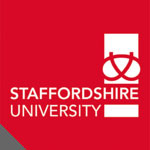Ethical, eco, organic, green…what does it all mean?
POWER, Jess, Lea-Greenwood, G, Blanco-Velo, J and Tyler, D (2010) Ethical, eco, organic, green…what does it all mean? In: 17th Eirass Conference on Retailing and Consumer Services, 9th-10th July 2010, Istanbul, Turkey. (Unpublished)
|
Text
11 - 2010 Ethical, eco.pdf - AUTHOR'S ACCEPTED Version (default) Download (359kB) | Preview |
Abstract or description
The highly motivated ethical consumer has been under investigation since the mid 1970’s, defined as a distinct consumer
segment most notably since the early 1990s and been relatively well documented in terms of behaviours, values, decision
making, attitudes and motivation. Despite the recent mainstreaming of a broad range of ethical products and a steady
increase in media presentation of ethical issues, the perceptions of the mainstream consumer remain relatively under
researched.
This paper reports upon the exploratory investigation undertaken to examine the nature of the ethical fashion message
presented in popular print media. The aim of this first phase of study was to gain insight into the extent to which, the terms
used in the communication of ethical fashion are understood by female consumers who are representative of the wider
British public. A qualitative methodology was carried out using a grounded theory approach via the methods of qualitative
content analysis, Q Method, word association and focus group discussion. Data sources and data collection methods
were selected for their relevance in progressing the development of insights to the sending and receiving of the ethical
fashion message.
The findings of this research demonstrate the extent to which the ethical fashion message varies in its delivery. Outcomes
suggest that the complexity of the message leads to confusion and poor levels of engagement amongst mainstream
consumers. Findings provide evidence that the mainstream consumer does understand the ‘ethical language’, the
question raised is the extent to which this understanding is transferable to ethical fashion. Further analysis of the nature
and source of this confusion may provide a route map for the successful marketing of ethical fashion products.
| Item Type: | Conference or Workshop Item (Paper) |
|---|---|
| Faculty: | School of Business, Leadership and Economics > Business, Management and Marketing |
| Event Title: | 17th Eirass Conference on Retailing and Consumer Services |
| Event Location: | Istanbul, Turkey |
| Event Dates: | 9th-10th July 2010 |
| Depositing User: | Library STORE team |
| Date Deposited: | 06 Mar 2018 13:42 |
| Last Modified: | 24 Feb 2023 13:50 |
| URI: | https://eprints.staffs.ac.uk/id/eprint/4214 |
Actions (login required)
 |
View Item |

 Lists
Lists Lists
Lists






